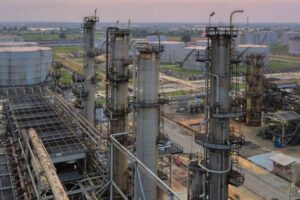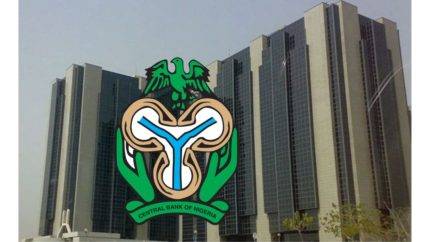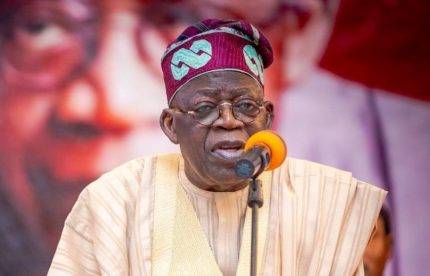After winning one of the most fiercely contested elections in Nigeria’s history, President Bola Tinubu’s administration faced immense pressure to deliver immediate results.President Tinubu’s victory was not just a political win but a beacon of hope for many Nigerians who believed in his Renewed Hope mantra. He was widely accepted as a visionary leader with the potential to steer Nigeria towards a brighter future. However, this optimism was not universal; a significant number of critics remained skeptical, predicting his imminent failure.
From the onset, President Tinubu’s administration was marked by bold, decisive actions aimed at addressing Nigeria’s myriad challenges. Like a skilled surgeon, President Tinubu implemented policies designed to remedy the country’s ailing economic and social structures. These measures, while painful in the short term, were intended to set the stage for long-term prosperity. Among these decisions were the removal of fuel subsidies, a move intended to free up resources for critical infrastructure projects, and aggressive anti-corruption campaigns aimed at restoring public trust in government institutions.
Hope and Realities
The hope that came with President Tinubu’s presidency was palpable across Nigeria. His Renewed Hope agenda promised economic revitalization, improved security, and greater transparency. Early in his tenure, President Tinubu’s government initiated programs to stimulate economic growth, such as incentives for small and medium-sized enterprises and investments in technology and innovation sectors. These efforts aimed to diversify Nigeria’s oil-dependent economy and create sustainable employment opportunities.
However, the realities of governance soon tempered the initial optimism. The removal of fuel subsidies, though economically rational, led to widespread public discontent due to the immediate spike in fuel prices and the resultant cost of living increases. Additionally, while the anti-corruption drives were lauded, they exposed the deep-seated systemic issues that plague Nigeria’s governance. Critics argued that the administration’s actions, though necessary, were not adequately cushioned with social safety nets to protect the most vulnerable populations.
As President Tinubu’s administration moves into its second year, the balance between maintaining public support and implementing necessary but painful reforms remains delicate. The journey ahead is fraught with challenges, but the foundation laid in his first year could be pivotal for Nigeria’s future. The coming months will be crucial in determining whether the hope sparked by his leadership can be sustained amidst the harsh realities of governance.
Economy Reforms and New Policies To Rejig The Economy By President Tinubu
In his first year, President Bola Tinubu’s administration has embarked on a series of initiatives aimed at revitalizing Nigeria’s economy and enhancing the quality of life for its citizens. Taking office amidst a severely struggling economy, President Tinubu prioritized a multifaceted approach to attract both local and foreign investments. This strategy included enhancing the business environment and providing direct economic relief to Nigerians. One of the key measures was the introduction of ease-of-doing-business reforms, which streamlined bureaucratic processes, thereby fostering entrepreneurship and investment.
Additionally, significant tax and fiscal policy reforms were enacted to stimulate economic growth and ensure stability. Monetary policy adjustments were also implemented to control inflation and stabilize the national currency. To support vulnerable populations, the administration rolled out a range of social welfare programs including grants, student loans, food and fertilizer distribution, cash transfers, health insurance, and consumer credit. A new minimum wage was also negotiated to boost workers’ purchasing power. Furthermore, President Tinubu’s administration tackled longstanding challenges in the solid minerals sector by proposing the Nigeria Solid Minerals Corporation, aimed at unlocking the sector’s potential and diversifying the economy.
Parallel interventions in the gas sector have been equally transformative. With Nigeria’s vast natural gas reserves, estimated at about 209 trillion cubic feet, the country has embarked on an ambitious “gas revolution” to drive economic growth. These reforms have started to show promising results. For instance, foreign currency inflows to Nigeria in the first quarter of 2024 surpassed the total inflows for the entire previous year. Although inflation remains a pressing concern, analysts believe that the administration’s policies are on the right track. President Tinubu has shown remarkable leadership by making difficult but necessary decisions, while also maintaining open communication and a willingness to adjust policies as needed.
Criticism and Challenges
Despite these efforts, President Tinubu’s administration has faced significant criticism. Some critics argue that the administration’s achievements are overshadowed by persistent inflation, high prices of essential goods like food, and unfavorable exchange rates. These economic challenges have left many Nigerians struggling to cope with the cost of living, leading to dissatisfaction with the pace and impact of the reforms.
However, many analysts suggest that these criticisms overlook the long-term benefits of the reforms. Just as a patient requires time to recover fully after a major surgery, Nigeria needs time to feel the positive effects of the tough decisions made by President Tinubu’s administration. The necessity for more immediate, tangible results felt by the citizenry cannot be understated, yet the administration’s first year has been marked by hard decisions aimed at laying the groundwork for future prosperity.
Public affairs analyst Bakare Abiodun noted, “The hallmark of leadership is indeed making difficult decisions when they need to be made, and President Tinubu is proving himself to be a leader who is not afraid to take the tough steps necessary to ensure a prosperous tomorrow for all Nigerians.”
Looking Forward
Despite the ongoing challenges, there is a sense of cautious optimism about Nigeria’s future under President Tinubu’s leadership. The administration’s commitment to reform and economic stabilization is evident, and the early results are promising. Foreign investments are increasing, and there is a renewed sense of hope that the Nigerian economy will soon be on a firmer footing. The administration’s initiatives, particularly in the gas and solid minerals sectors, are seen as critical to diversifying the economy and reducing dependency on oil.
President Tinubu has also demonstrated a commitment to transparency and communication, positioning himself as the Chief Marketing Officer (CMO) of the Federation. His efforts to clearly articulate the administration’s vision and actions have been well received by both domestic and international observers. As Nigeria continues to navigate its economic challenges, the resilience and adaptability of President Tinubu’s policies will be crucial in determining the country’s trajectory. While the road ahead may be fraught with difficulties, the foundational work done in the administration’s first year offers a blueprint for a more robust and diversified economy.











